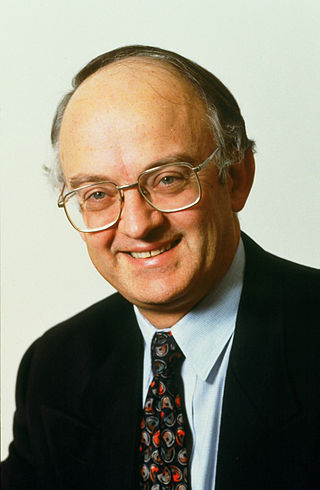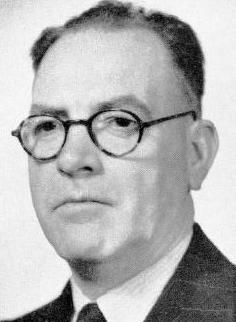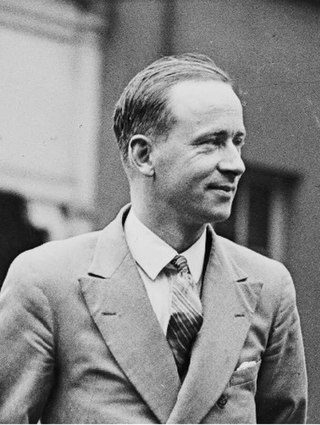Related Research Articles

John Christian Watson was an Australian politician who served as the third prime minister of Australia from April to August 1904. He held office as the inaugural federal leader of the Australian Labor Party (ALP) from 1901 to 1907 and was the first member of the party to serve as prime minister.

The 1996 Australian federal election was held to determine the members of the 38th Parliament of Australia. It was held on 2 March 1996. All 148 seats of the House of Representatives and 40 seats of the 76-seat Senate were up for election. The Liberal/National Coalition led by Opposition Leader John Howard of the Liberal Party and coalition partner Tim Fischer of the National Party defeated the incumbent Australian Labor Party government led by Prime Minister Paul Keating in a landslide victory. The Coalition won 94 seats in the House of Representatives,which is the largest number of seats held by a federal government to date,and only the second time a party had won over 90 seats at a federal election.
Ian Raymond Causley was an Australian politician. He was a Nationals member of the Australian House of Representatives,representing the Division of Page,New South Wales from 1996 to 2007.

Robert Francis McMullan is a former Australian politician. A member of the Australian Labor Party (ALP),he was a cabinet minister in the Keating government as Minister for Arts and Administrative Services (1993–1994) and Minister for Trade (1994–1996). He was a member of federal parliament for over 22 years,initially as a Senator for the Australian Capital Territory from 1988 to 1996 and then as a member of the House of Representatives from 1996 to 2010. Prior to entering parliament he was state secretary of the ALP in Western Australia from 1975 to 1981 and national secretary from 1981 to 1988.

John Philip Faulkner is an Australian former Labor Party politician who was a Senator for New South Wales from 1989 to 2015. He was a Cabinet Minister in the Keating,Rudd and Gillard governments.

John Sydney "Joe" DawkinsAO is an Australian former politician who was Treasurer in the Keating Labor government from December 1991 to December 1993. He is notable for his reforms of tertiary education as Minister for Employment,Education and Training,his period as Treasurer when he attempted to increase taxes in order to balance the budget and his abrupt exit from politics.

John Charles Kerin was an Australian economist and Labor Party politician who served in the House of Representatives from 1972 to 1975 and again from 1978 to 1993. He held a number of senior ministerial roles in both the Hawke and Keating governments,including six months as Treasurer of Australia and eight years as Minister for Primary Industries and Energy,holding the latter role for the longest period in Australian history.

Lang Labor was a faction of the Australian Labor Party (ALP) consisting of the supporters of Jack Lang,who served two terms as Premier of New South Wales and was the party's state leader from 1923 to 1939. It controlled the New South Wales branch of the ALP throughout most of the 1920s and 1930s. The faction broke away to form separate parliamentary parties on several occasions and stood competing candidates against the ALP in state and federal elections.
The Australian Labor Party (Non-Communist),which operated from 1940 to 1941,was a breakaway from the Australian Labor Party (ALP),and was associated with the Lang Labor faction and former New South Wales premier Jack Lang.
Colin Hollis is a retired Australian politician. He was a member of the House of Representatives from 1983 to 2001,representing the Australian Labor Party (ALP).
Peter John Knott was an Australian politician,elected as a member of the Australian House of Representatives. He represented Gilmore from 1993 to 1996 for the Australian Labor Party (ALP).
Steven James Robert Whan is an Australian politician who has served as Minister for Skills,TAFE and Tertiary Education since 2023. He has represented the electoral district of Monaro in the New South Wales Legislative Assembly for the Labor Party since 2023,after previously representing the seat from 2003 until 2011. He was a member of the Legislative Council from 2011 to 2015. Whan served as Minister of Emergency Services,Minister for Small Business and Minister for Rural Affairs in the Rees and Keneally ministries from 2009 to 2011. Whan lives in Queanbeyan with his wife and two children. Whan is a member of Labor Right.

Barry Cohen AM was an Australian politician. He was a member of the Australian Labor Party (ALP) and served in federal parliament from 1969 to 1990,representing the Division of Robertson in New South Wales. He held ministerial office in the Hawke government from 1983 to 1987.

Peter Frederick Morris is an Australian former politician. He held senior ministerial office in the Hawke government,serving as Minister for Transport (1983–1987),Aviation (1984–1987),Resources (1987–1988),Transport and Communications Support (1988),and Industrial Relations (1988–1990). He was a member of the House of Representatives from 1972 to 1998,representing the seat of Shortland for the Australian Labor Party (ALP). His brother Allan and son Matthew were also members of parliament.

Dominic Eric Costa was an Australian politician. He was an Australian Labor Party member of the Australian House of Representatives from 1949 to 1969,representing the electorate of Banks.

Major Clarence Edward Martin was an Australian politician and a member of the New South Wales Legislative Assembly from 1930 until 1932 and from 1939 until his death in 1953. He was variously a member of the Australian Labor Party (NSW),the Industrial Labor Party and the Labor Party (ALP). He was the Attorney General of New South Wales from 1941 until 1953 and also held the position of Minister for Transport for six months prior to his death.
A by-election was held for the New South Wales Legislative Assembly electorate of Clarence on 25 May 1996 following the resignation of sitting member,Ian Causley (National),to contest federal seat of Page at the 1996 election.
The history of the Australian Labor Party has its origins in the Labour parties founded in the 1890s in the Australian colonies prior to federation. Labor tradition ascribes the founding of Queensland Labour to a meeting of striking pastoral workers under a ghost gum tree in Barcaldine,Queensland in 1891. The Balmain,New South Wales branch of the party claims to be the oldest in Australia. Labour as a parliamentary party dates from 1891 in New South Wales and South Australia,1893 in Queensland,and later in the other colonies.

Dugald Milton Dick is an Australian politician serving as the 32nd and current speaker of the Australian House of Representatives since 2022. A member of the Australian Labor Party (ALP),he has been the member of parliament (MP) for the division of Oxley,covering Brisbane's south-western suburbs,since 2016. He previously served on the Brisbane City Council from 2008 to 2016 and as an ALP state secretary from 2004 to 2008.

A leadership spill of the Australian Labor Party (ALP),then the opposition party in the Parliament of Australia,was held on 16 July 1982. Shadow Minister for Industrial Relations,Employment and Youth Bob Hawke unsuccessfully challenged ALP leader Bill Hayden,with Hayden winning 42 votes to 37.
References
- 1 2 3 "Woods, Harry Francis". Parliamentary Handbook. Parliament of Australia. Retrieved 19 August 2024.
- 1 2 3 "The Hon. Harry Francis Woods". Former members of the Parliament of New South Wales . Retrieved 13 May 2019.
- 1 2 3 "Woods to quit House for grandkids". Sydney Morning Herald. 17 October 2002. Retrieved 19 August 2024.
- ↑ Houssos, Courtney (1 July 2012). "Labor Can't Win Government Without Country Labor". NSW Centre Unity. Retrieved 19 August 2024.
- ↑ Thompson, Jeremy (11 December 1991). "Leadership: MPs switch, but with conditions". The Canberra Times.
- ↑ Grose, Simon. "Labor rural back bench says keep post offices". The Canberra Times.
- ↑ Chamberlin, Paul (27 December 1994). "Keating's plan will backfire, loggers warn". The Canberra Times.
- ↑ Chamberlin, Paul (20 December 1994). "Loggers ready to blockade". The Canberra Times.
- ↑ "Greens stick by marginal MPs". The Canberra Times. 25 December 1994.
- ↑ Green, Antony. "1995 Clarence by-election". New South Wales Election Results 1856-2007. Parliament of New South Wales . Retrieved 25 July 2020.
- ↑ "Negligent doctor to pay $3m". The Canberra Times. 10 February 1995.
- ↑ Norwood, Catherine (1 December 2015). "From a strong field of contenders, new directors have been selected to oversee the future of the FRDC". Fisheries Research and Development Corporation. Retrieved 19 August 2024.